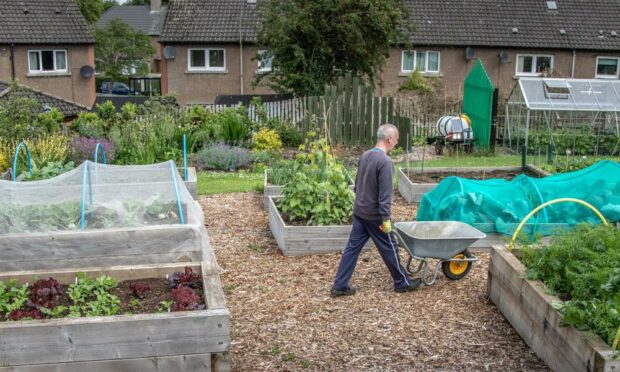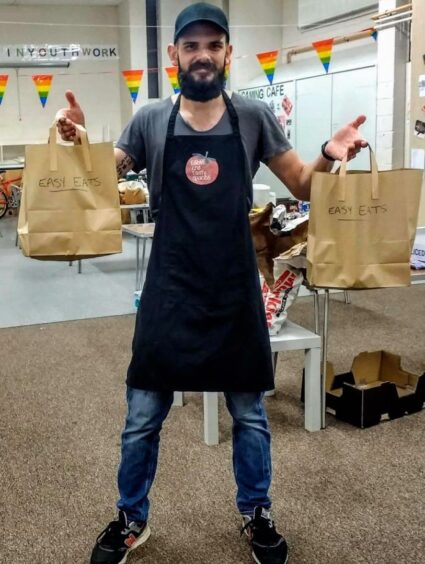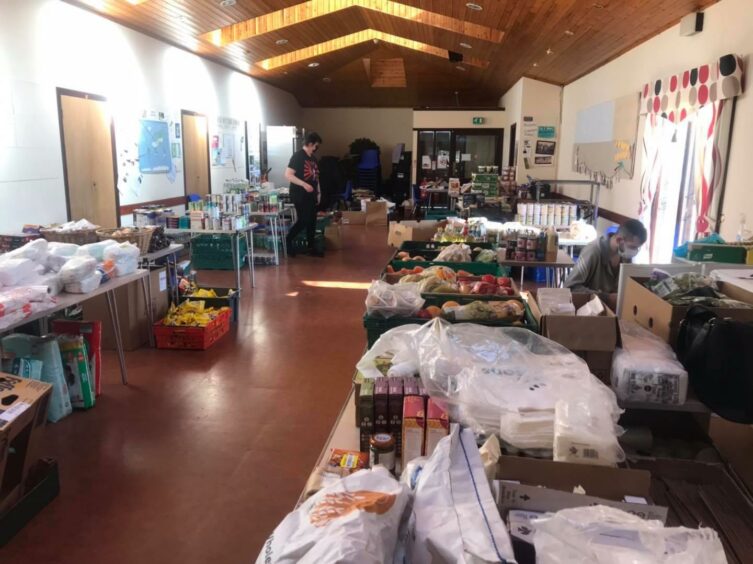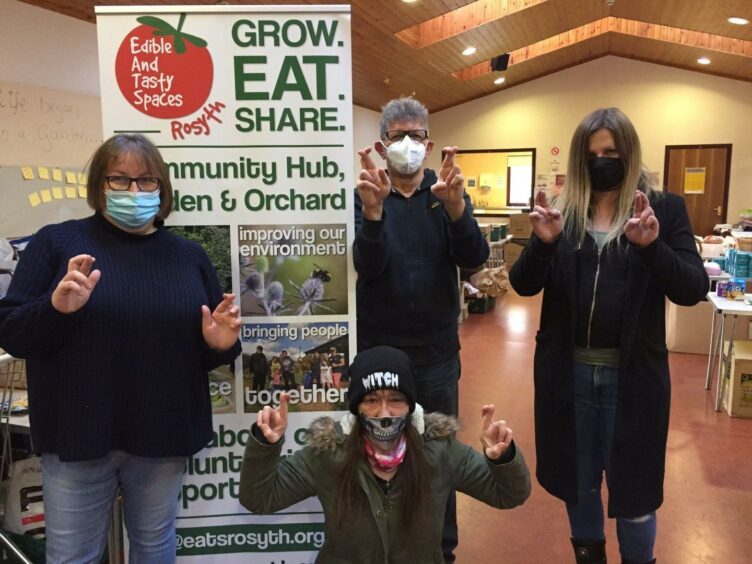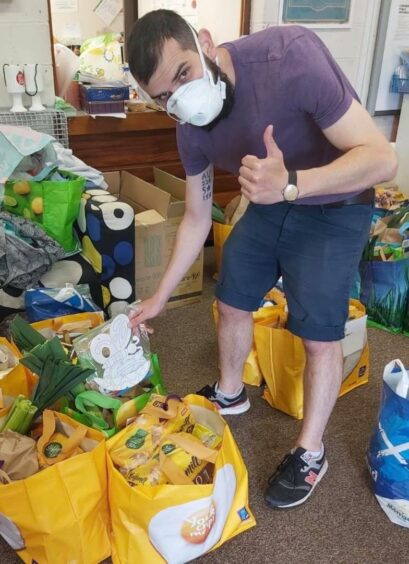Since 2015, community-led charity EATS Rosyth has aimed to grow and share food, reduce waste, help the environment and improve food education.
But when the pandemic came along its staff found themselves with key worker status and their roles changed from food educators to emergency food providers.
Ethan Daish, food project manager at EATS Rosyth, speaks out about what the past 18 months has been like as he and his colleagues turned the project into a foodbank almost overnight.
“I guess anyone was happy to be called a Key Worker last year as it meant you were fulfilling a purpose,” he says.
“It seemed that our role changed very, very quickly – almost overnight. We had to come up with ways in which we would get food to people so it really did become a crisis very quickly in terms of what we were doing to help people.
“We had to close our community hub as soon as it became clear we were going into lockdown. But even when we weren’t in lockdown we were subject to social distancing measures and because we had such a small premises, it just wasn’t feasible to do anything from that premises.
“We ended up moving to more temporary premises and just having that physical move away from our old community hub into two bigger halls.”
Change in status
After spending more than four years educating the local community on growing their own food, reducing food waste and organising cooking classes so people could learn how to cater for themselves, Ethan and his team felt their change in status was exacerbated by Covid.
“EATS Rosyth is here and we’re part of the food system and we’ve obviously been part of the food system for quite a while – we fulfil a purpose right at the end of the food chain in terms of we get stuff from suppliers after they’ve not been able to sell it.
“Our role has changed because of the changing needs of society and of the people we are serving in our communities.
“Suddenly we’re in a food hall making bags up for people, whereas before we had people coming in to look at what we had on any given day and for a lot more than just food. We were also doing a lot more different things day to day than we’ve managed this last period.
“I think Covid just accelerated what we’d already been seeing in terms of people’s dependence on food provision from sources that maybe, in my opinion, shouldn’t be expected to take on that role.”
Returning to normal
Frustrated by the fact that EATS Rosyth’s role was forced into food provision and away from community education, as a result of the pandemic, Ethan hopes the charity will be able to return to its roots in the near future.
He adds: “We’ve found ourselves in a frustrating position at the moment because providing food in a crisis situation is quite an intensive process. It demands quite a lot from us as an organisation – we spend Monday to Friday doing this now.
“We are making steps to get away from it, which has been partly enforced and partly because it wasn’t really our aim or our remit to do this before Covid. We have in essence become more like a foodbank.
“It’s frustrating because it takes so much of our time and resource now when, in my opinion we should be doing stuff with greater social benefit, like we used to do.
“Our organisation was never designed to be a foodbank but suddenly we’ve spent most of our time and effort providing crisis food and not the stuff with a more lasting impact, such as cooking classes. It’s just gone by the wayside a bit and now become very hard for us to do that.
“It’s been exacerbated by the pandemic but I think it also shows issues in society that were there before.”
Though the pandemic brought about a crisis situation in terms of food provision – with panic buying leading to a shortage of some items at the start of lockdown last year – much of the inequality existed before Covid, Ethan says.
“I think there are certainly gaps in society which even before Covid were certainly being plugged by third sector organisations, ourselves included,” Ethan continues.
“I think Covid exacerbated the need for those and it felt like we needed to provide a service.
“It became quite clear early on that we were going to get access to lots of food and that it would be needed by a lot of people.
“The system is quite complicated and there are different obligations for organisations. I honestly couldn’t tell you how much we are relied upon for food at the moment.”
Reducing waste
Its role over the past 18 months has caused EATS Rosyth to find itself conflicted around one of its main aims – reducing food waste.
“It is frustrating because food waste is a big problem which needs solving and our role in providing that food can sometimes conflict with our aims.
“We would like to see an end to food waste and the reason that we’ve tried to keep good food in circulation is because we’d like to see that food made use of. Ideally there would be no food waste.
“It kind of conflicts sometimes because it feels as though we are helping the problems continue and enabling food waste in some respects because we’ve become a way to keep that process going.
“Day to day we see a lot of stuff shifted to us and it becomes a never-ending thing. It’s nice that we can keep good food in circulation rather than letting it go in the bin, but it’s not as simple as that.”
